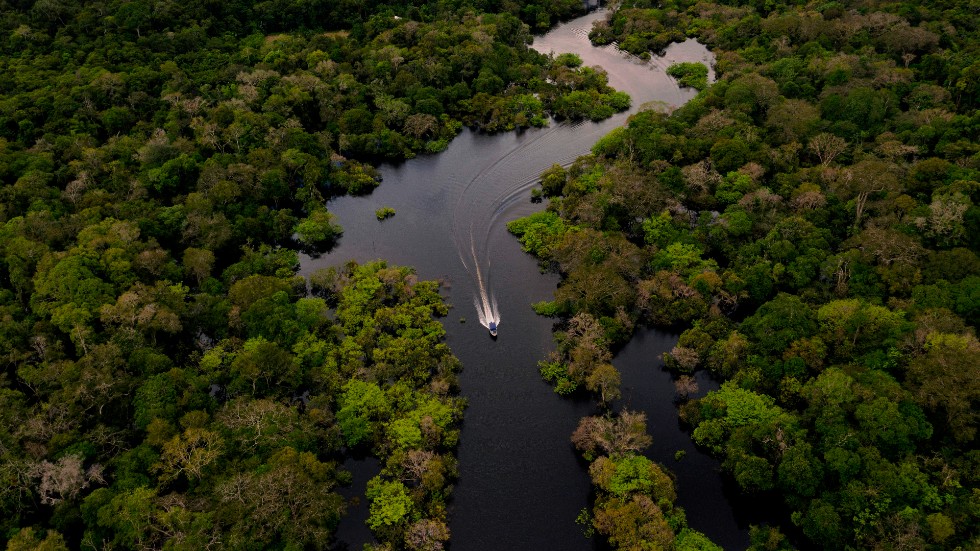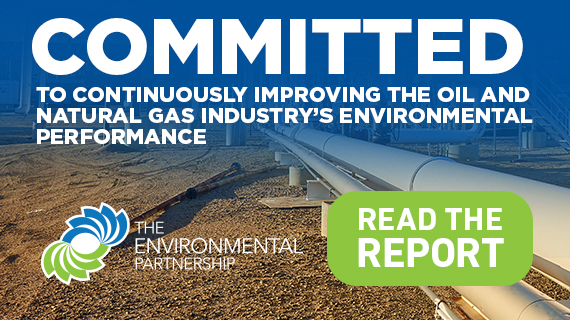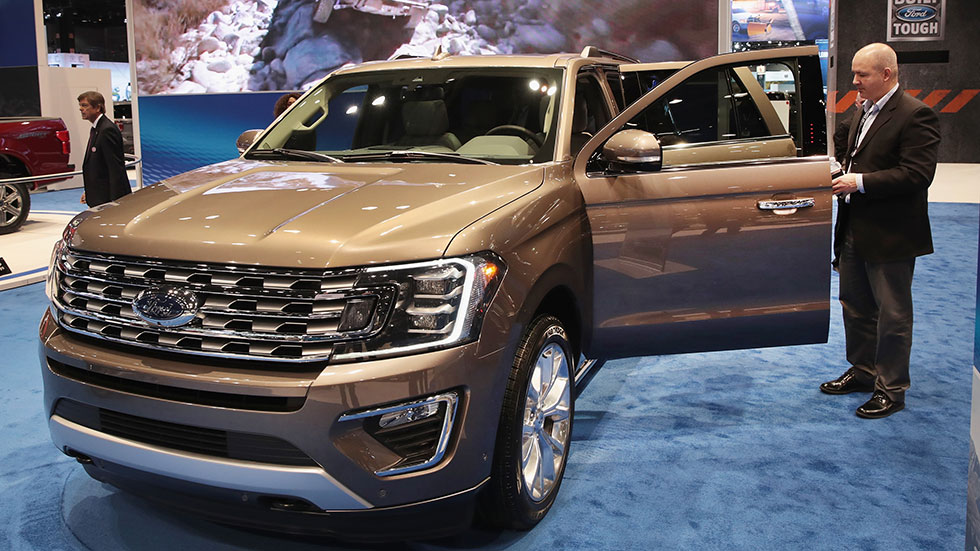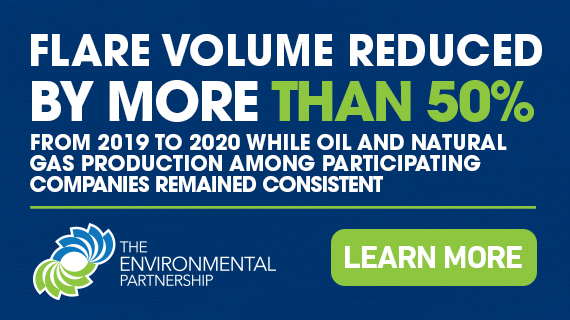Equilibrium/Sustainability — Presented by The American Petroleum Institute — Climate cataclysm paved way for dinosaurs

Today is Tuesday. Welcome to Equilibrium, a newsletter that tracks the growing global battle over the future of sustainability. Subscribe here: digital-stage.thehill.com/newsletter-signup.
A series of enormous volcanic eruptions 250 million years ago triggered “mega-monsoons” and mass extinctions — all of which paved the way for the rise of the dinosaurs, according to a new study published by the National Academy of Sciences’ journal.
The study is a reminder that the biosphere can respond in wondrous ways when something rips a hole in it — as well as the consequences of ripping such holes.
“The scale of these eruptions dwarfs every volcanic eruption in human history,” Sarah Greene, a study co-author and paleoclimatologist at the University of Birmingham, told The New York Times. “But the rate at which these eruptions emit carbon dioxide is tiny compared to human carbon dioxide emissions today.”
Those releases happened over millions of years — thousands of times slower than the current rise in carbon dioxide from current industrial emissions, the study found.
Today we’ll turn to one region venting stupendous emissions into today’s atmosphere: the Amazon rainforest, where protected areas offer a way out of the apparent conflict between conservation and economic growth. Then we’ll travel to the U.S. South, where Ford is building big to meet a future of no-emission automobiles.
For Equilibrium, we are Saul Elbein and Sharon Udasin. Please send tips or comments to Saul at selbein@digital-stage.thehill.com or Sharon at sudasin@digital-stage.thehill.com. Follow us on Twitter: @saul_elbein and @sharonudasin.
Let’s get to it.
For Brazil, conservation and economic growth may overlap

People who reside in official protected areas in the Brazilian Amazon enjoy far more comfortable and secure lives — and are far less likely to want to move to cities — than those living outside in rural areas outside these zones, a recent study found.
This undercuts a longstanding belief about tropical conservation: that it happens at the expense of local economic development, study coauthor Carlos Peres said in a statement in Science Daily.
Instead, Peres said, “local communities can accrue substantial benefits, rather than incur opportunity costs, from tropical forest protected areas.”
Step one: Brazil houses one of the world’s largest collections of protected natural areas: the Amazon Regional Protected Area program, which now covers more than 60 million hectares (about 150,000 acres), according to the program.
That’s 15 percent of the Brazilian Amazon — almost twice the area of all the U.S. national parks, according to the National Park Service, and a bit smaller than Texas.
Are environmental protections versus the economy a zero-sum choice? Many Brazilians — particularly those in the mining or cattle-ranching businesses — claim these protected areas are a brake on the national economy, as The New York Times reported in 2018.
In the run-up to his 2018 election, right-wing president Jair Bolsonaro claimed that the environmental protections that had halted Amazon deforestation were “suffocating the country” and decried indigenous reserves, saying that wherever they existed, “there is wealth underneath,” the Times reported.
When environmentalists pushed back on this, they tended to point out, for example, that indigenous-protected land was very effective at stopping deforestation, as in this Mongabay piece.
Both sides were talking past each other: For miners, commodity farmers and ranchers, deforestation is often the intended goal — it’s the key to opening up dense forestlands for resource exploitation.
As the debate was carried out in moral terms, one question was left “poorly understood” — whether protected areas posed economic and social costs or benefits to the communities that lived in them, the researchers wrote in the Proceedings of the National Academy of Sciences.
So they set out on an epic journey to ask that question of the communities themselves.
A MESSAGE FROM API

The Environmental Partnership recently released its annual report highlighting its new flare management program that reported a 50 percent reduction in flare volumes from 2019 to 2020. Read more.
WHAT DID THEY FIND?
They surveyed members of 100 communities along 1,600 miles of the Juruá River, the Amazon’s second-longest tributary.
When their study was released on Monday, they had documented that living within protected areas formed “the strongest predictor of household wealth” and dramatically improved the likelihood that residents would have access to clinics, education, sanitation and communications.
One gestalt metric of the difference: People in protected areas were more than 10 times less likely to want to move to the city than those in unprotected areas —5 percent versus 58 percent.
This is in part because, as the study notes, a healthy ecosystem helps foster certain lucrative Amazonian industries —like beekeeping and agroforestry, according to La Prensa Latina.
A warning to Brazil: The study came out the same day that chief executives from the Brazilian offices of leading brands like Amazon.com, Shell and meatpacker JBS warned that Brazil’s tardiness in cutting deforestation or joining international efforts to create a global carbon market could lock it out of “a new economic-climate order that is unfolding before our eyes,” Reuters reported.
Failure to do so could mean “enormous losses for the productive sector and for Brazilian society,” the executives warned.
That’s a risk sooner rather than later. For Brazil’s agricultural sector, environmental losses are already turning into economic ones, as deforestation has “played a big role” in series of climate-linked droughts and hard freezes has wrought havoc — and spiked prices — among Brazil’s commodity growers of products like corn, sugar, coffee, soy and oranges, meteorlogist Macelo Seluchi told Bloomberg Green.
Last words: The failure of conservation in the Brazilian forest, Seluchi said, was destabilizing economically-vital weather systems on the faraway Atlantic coast. “There is no rain because there is no humidity, and there is no humidity because there is no rain,” he said. “The world is on a very dangerous path.”
Ford to bolster electric vehicle production in multibillion-dollar push

Ford Motor Company announced plans on Monday to bolster its electric vehicle footprint in the U.S., by investing billions in three new battery plants and a pickup truck factory — promising 11,000 jobs across Tennessee and Kentucky, The Hill reported.
“This is our moment – our biggest investment ever – to help build a better future for America,” said Jim Farley, Ford president and CEO, said in a press statement. “We are moving now to deliver breakthrough electric vehicles for the many rather than the few.”
Just how big are these plants? Ford and South Korean partner SK Innovation are investing $11.4 billion in these new initiatives, which include a $5.6 billion mega-campus in Tennessee, called Blue Oval City. The campus will house a battery plant, a carbon neutral F-Series assembly line, key suppliers and recycling facilities, a company news release said.
And, in Kentucky, Ford and SK Innovation will be establishing $5.8 billion twin battery plants that will produce batteries for electric Ford and Lincoln vehicles, according to the news release.
A national EV surge: Ford’s announcement comes almost two months after President Biden outlined his goal of making 50 percent of vehicle sales electric by 2030, as The Hill reported. At the time, Ford expected its sales to reach 40 to 50 percent electric by that year. GM had said it intends to be all-electric by 2035.
Automakers like Ford and GM are playing catchup with Tesla, which should sell more than 800,000 electric vehicles this year, The New York Times reported. Tesla’s market value is nearly $800 billion, while Ford’s is just $56 billion, according to the Times.
Toyota — which had previously focused on hybrid production — recently said it would spend billions of dollars building battery factories, while other automakers have made similar declarations, the Times reported.
“The fact they are spending billions of dollars means they’re saying: ‘There’s no turning back. We’re really going to do this,’” Mike Ramsey, a Gartner analyst, told the Times.
STUMBLING BLOCKS ALONG THE WAY
The Ford venture also comes amid high demand for the Ford F-150 Lightning truck, as well as the E-Transit and Mustang Mach-E, the company said.
But vehicle rollouts have been a bit rocky. Just last week, Ford recalled 17,692 of its Mustang Mach-E SUVs because windshields and sunroofs may not have been properly attached, Car and Driver reported, citing a National Highway Traffic Safety Administration filing.
And then there are supply issues. Not only are electric vehicles more expensive than conventional cars, but the number of charging stations is still insufficient, Ramsey told the Times.
Acquiring raw materials for batteries, like lithium and cobalt, are also causing difficulties for manufacturers — thereby slowing electric vehicle uptake, The Wall Street Journal reported.
“A watershed moment” for Tennessee: In Tennessee and Kentucky, officials are celebrating Ford’s announcement.
Blue Oval City, which will begin production in 2025, will rely on renewable energy, collect materials for recycling and conduct in-house wastewater treatment — minimizing freshwater withdrawal, according to Ford.
“This is a watershed moment for Tennesseans as we lead the future of the automotive industry,” Tennessee Gov. Bill Lee (R) said in a statement.
An economic boon for Kentucky: Production of advance lithium-ion batteries at the Kentucky plants will also begin in 2025 — marking “the single largest economic development project” in state history, according to Gov. Andy Beshear (D).
“Our economy is on fire – and now, it’s electric,” Beshear said in a statement. “Never again will we be thought of as a flyover state.”
Last words: Senate Minority Leader Mitch McConnell (R-Ky.) likewise applauded Ford’s decision to build the battery plants in his home state, tweeting that this move “will provide a much-needed economic boost to the region and create thousands of well-paying Kentucky jobs.”
“With Ford’s commitment, we have further solidified our role as a world-class automotive state on the cutting edge of research and development,” McConnell said
A MESSAGE FROM API

The Environmental Partnership recently released its annual report highlighting its new flare management program that reported a 50 percent reduction in flare volumes from 2019 to 2020. Read more.
Travel Tuesday
Google adds ‘eco-certified badge’ for hotel searches
- Travelers can now see details about a hotel’s sustainability efforts when searching for accommodations on Google, Travel and Leisure reported.
- To earn an “eco-certified badge,” which appears as a green leaf, the hotels will need to be verified by independent groups like Green Key or EarthCheck, according to Google.
- Guests who want to learn more about what initiatives a particular hotel is taking — like food waste reduction, soap donations and energy conservation — can click on “learn more” and then navigate to the hotel’s “about” section, USA Today reported.
Young Afghan scientist grapples with how to get to Glasgow
- Afghan climate scientist Nasratulla Mateen, 24, faces a steep uphill battle to reach the November U.N. climate conference in Glasgow, the U.K. Mirror reported.
- The U.K. embassy’s closure means he would need to visit a neighboring country to get a visa, while the Taliban takeover has put his research on hold — not to mention that the journey is “impossibly expensive,” he told the Mirror.
- But with his country rated as one of the most at risk from climate change, he is scrambling to raise the $4000 (£3,000) needed to get him there.
- “Though I am experiencing the worst and darkest days of my life here in Afghanistan, with a future filled with uncertainties and disappointments, I do not want to give up,” he told the Mirror.
Ultra-rich pandemic travel features high-emission ‘superyachts,’ private jets
- The ultra-rich have found a way to circumvent pandemic-related travel constraints, by embracing what CNN described as “the ultimate symbol of wealth”: the “superyacht.”
- A flood of orders has created a global fleet of thousands such oil-guzzling yachts — defined as those at least 80 feet in length and managed by professional crews, according to CNN.
- Because these yachts have such a negative impact on the environment, one proposed ship is aiming to leverage the superyacht’s appeal by creating an emissions-free model called Earth 300 — supported by a not yet commercially available quantum computer and powered by nuclear energy, according to CNN.
- In other ultra-rich travel news, critics slammed the Duke and Duchess of Sussex on Monday for attending a concert in support of climate action and departing on a private jet, The Times reported.
Please visit The Hill’s sustainability section online for the web version of this newsletter and more stories. We’ll see you on Wednesday.
{mosads}
Copyright 2023 Nexstar Media Inc. All rights reserved. This material may not be published, broadcast, rewritten, or redistributed. Regular the hill posts







